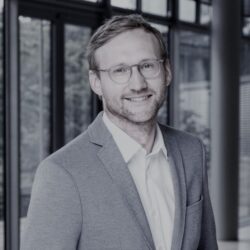Deliberation as a concept has been developed as an ideal-typical approach to renew public communication and participation in the political and social sciences and to enhance the legitimacy of political institutions and their decisions. How values and norms pertinent to the model of deliberation (e.g., rationality, interactivity, and openness) get incorporated into political practice due to legal requirements or local design decisions in order to increase the legitimacy of political decisions has been researched only scarcely.
Thus, the aim of the common project of researchers from the HHU and the University of Warsaw is to analyze the relevance of values and norms associated to the concept of deliberation in practices of public consultations by local administrations in Germany and Poland. We analyze how these practices compare to one another and through which factors they are shaped. For the purpose of this study, we will focus on public consultations as an institutionalized channel of communication between local governments and members of local communities.
We will begin the project with the analysis of the most significant EU documents as well as national, regional, and local legal requirements regarding public consultations in order to capture the formal and legal context of deliberation in public consultations. Followed by an investigation into the conduct of public consultations by representatives of German and Polish municipalities. The core element of the project will consist of an experiment involving municipal clerks carrying out tasks regarding the planning and conducting of public consultations with the use of the inDialogue software (open license, non-commercial software).
As a result, we will identify the routinely used procedures of public consultations in municipalities and compare them with the model of deliberative public consultations as described in the literature and identified in the course of our document analysis. We aim to explain institutional and other factors that can be responsible for differences in the clerks’ perceptions and performance in the two countries. Finally, we will develop a set of guidelines for how IT can better support the administrative processes of public consultations and implement them exemplary in the projects own inDialogue software.
- Funding source: Funded by the German-Polish-Science-Foundation
- Project partner: University of Warsaw (Institute of Sociology, Centre for Deliberation)
- Duration: May 2019 until July 2021
Contact
Dr. Malte Steinbach
Alumni, Business Administration, Sociology

Dr. Malte Steinbach supervised DIID as scientific coordinator from April 2019 to April 2020. Since 2020, he has been project manager at the DIID cooperation partner Zebralog in Bonn. He wrote his dissertation at the Chair of Business Administration, esp. Labor, Human Resources and Organization at the HHU-Düsseldorf as part of the NRW Progress College Online Participation. At the University of Bonn, he studied geography with a minor in urban planning and economics. In his master thesis he investigated the topic of e-participation in urban development using the city of Bonn as an example. His research deals with the providers of online participation processes from an organizational theory perspective.
In his doctoral thesis, he investigated the diffusion of online participation in public organizations based on neoinstitutionalist organizational theories.
Projects
Contact
Jun.-Prof. Dr. Tobias Escher
Board, Computer Science, Political Science, Sociology

Tobias Escher leads a BMBF-funded junior research group investigating the effects of participation processes on the quality and legitimacy of political decisions, especially in the context of the transformation to sustainable mobility in the local context. Previously, he supervised the DIID as well as the NRW Forschungskolleg Online-Partizipation at the HHU-Düsseldorf as scientific coordinator. He is a social scientist and holds a PhD from the Oxford Internet Institute at the University of Oxford. He can also draw on his basic knowledge of computer science when assessing the possibilities and limits of digitization.
His research focuses on the evaluation of political participation online and offline. In particular, he addresses the question of the extent to which citizen participation contributes to higher quality and legitimacy/acceptance of political decisions. He has developed a teaching module on the theory and practice of online participation, from which, among other things, a project on student participation in teaching has emerged.
Photographer: ©Tilman Schenk


